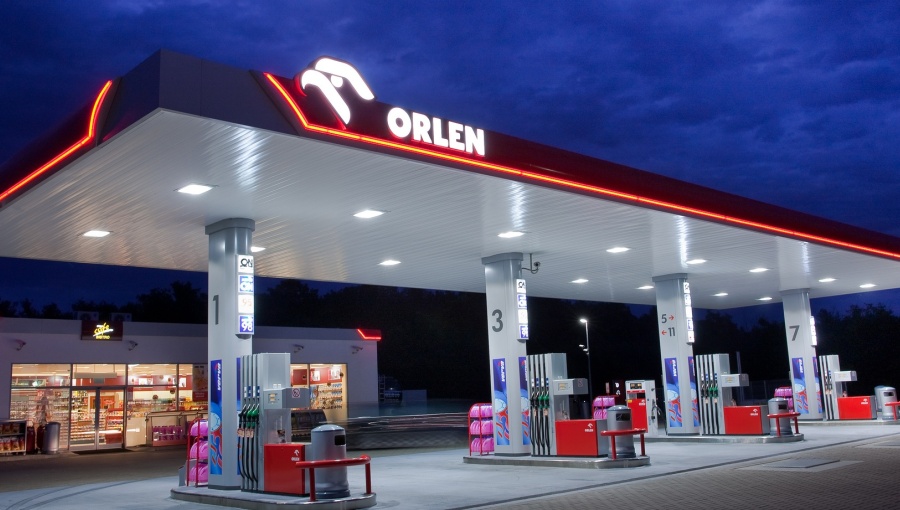Orlen sold Lotos assets for at least €1.15bn below market value, state auditor says

Warsaw-listed fuels and energy giant Orlen sold assets of peer Lotos PLN5bn (€1.15bn) below their market value, a report by the state audit body NIK said on February 5.
The report – the main findings of which Polish media uncovered in January – could spell trouble for the now ex-CEO of Orlen Daniel Obajtek and his political patrons from the formerly ruling Law and Justice (PiS) party, on whose watch Orlen took over Lotos, selling assets to meet anti-concentration measures imposed by the European Commission.
The Commission cleared the merger in 2021 pending Orlen’s divesting a 30% stake in the Lotos refinery in Gdansk, the sale of 80% of Lotos fuel stations, and offloading Orlen- and Lotos-owned fuel terminals to a third party.
Orlen sold the stake in the Gdansk refinery to Saudi Aramco, which also bought Lotos’ wholesale subsidiaries Lotos SPV 1 and Lotos-Air BP Polska. Hungary’s state-controlled oil and gas firm MOL bought Lotos’ retail operations, while Polish company Unimot bought fuel terminals as well as two asphalt production plants.
But the sale of those assets took place well “strikingly below” their market value, NIK has now reported.
The state audit body also said that the Orlen-Lotos merger, which the PiS government said would boost Poland’s fuel security, had instead put it at risk.
That is due to Saudi Aramco’s “privileged position” in the Gdansk refinery and the fact that the Saudis could in theory divert sales of 20% of the refinery’s output outside the Polish market, potentially causing fuel shortages in Poland.
“Aramco gained a strong position in the Gdansk refinery, including the right to veto key strategic decisions regarding the company's management … There is a risk of paralysing the [company’s] operations if shareholders do not agree on strategic directions of the company's development,” NIK said.
The NIK report also pointed out the PiS-era ministers of state assets and climate and environment for failing to minimise risks that the merger could result in, and the state assets minister specifically for inadequate supervision over the merger process.
The PiS government said at the time of the merger that the goal was to bulk up Orlen so that it becomes better suited to compete in the global oil and gas market. The company had also taken over other Polish state-controlled firms in the meantime, the power utility Enea and the gas miner PGNiG.
Orlen rejected NIK’s report. "The findings presented in the NIK report regarding the merger of Orlen with Lotos are worthless, compiled using an erroneous methodology and based on data that has nothing to do with the actual state of affairs," the company said in a statement.
“From August to December 2021, a few months before the signing of [the] preliminary [merger] agreement … the average capitalisation of the entire Lotos Group was around PLN11bn. NIK valued the assets of the Lotos Group that went to Saudi Aramco at PLN9.4bn, representing over 85% of the average capitalisation of the [entire company] from that period,” Orlen said.
“Therefore, NIK's calculations have nothing to do with how both domestic and foreign investors assessed the value of Lotos,” it also said.
The NIK report will now likely elevate Poland’s political war to new heights, as the new government under Prime Minister Donald Tusk will seek to hold predecessors from PiS to account over the controversial merger.
PiS has already begun its defence. “The NIK's report on the Orlen-Lotos merger is unreliable and distorted. The data used in it are selective, fragmentary and were selected for a predetermined political thesis,” Jacek Sasin, who was the minister of state assets at the time of the merger, said on X, alleging that NIK’s head Jacek Banaś is acting on the political orders of the Tusk government.
Orlen’s CEO Obajtek was dismissed by the company’s supervisory board last week. A local prosecutor’s office in Plock – where Orlen’s main offices are – said in late January that it is launching an investigation into the merger.
Meanwhile, changes in Orlen’s management board are looming closer, as the company’s extraordinary shareholders’ meeting is due on February 6.
The State Treasury, which holds a 49.9% stake in the company, will propose changes in Orlen’s supervisory board, a typical move before replacing executives that remain after Obajtek’s dismissal.
The company's stock fell 0.58% to PLN65.42 at the close of trading on the Warsaw Stock Exchange on February 5. Year to date, Orlen's share price has dropped 0.12%, having risen sharply after Obajtek’s sacking.


Follow us online